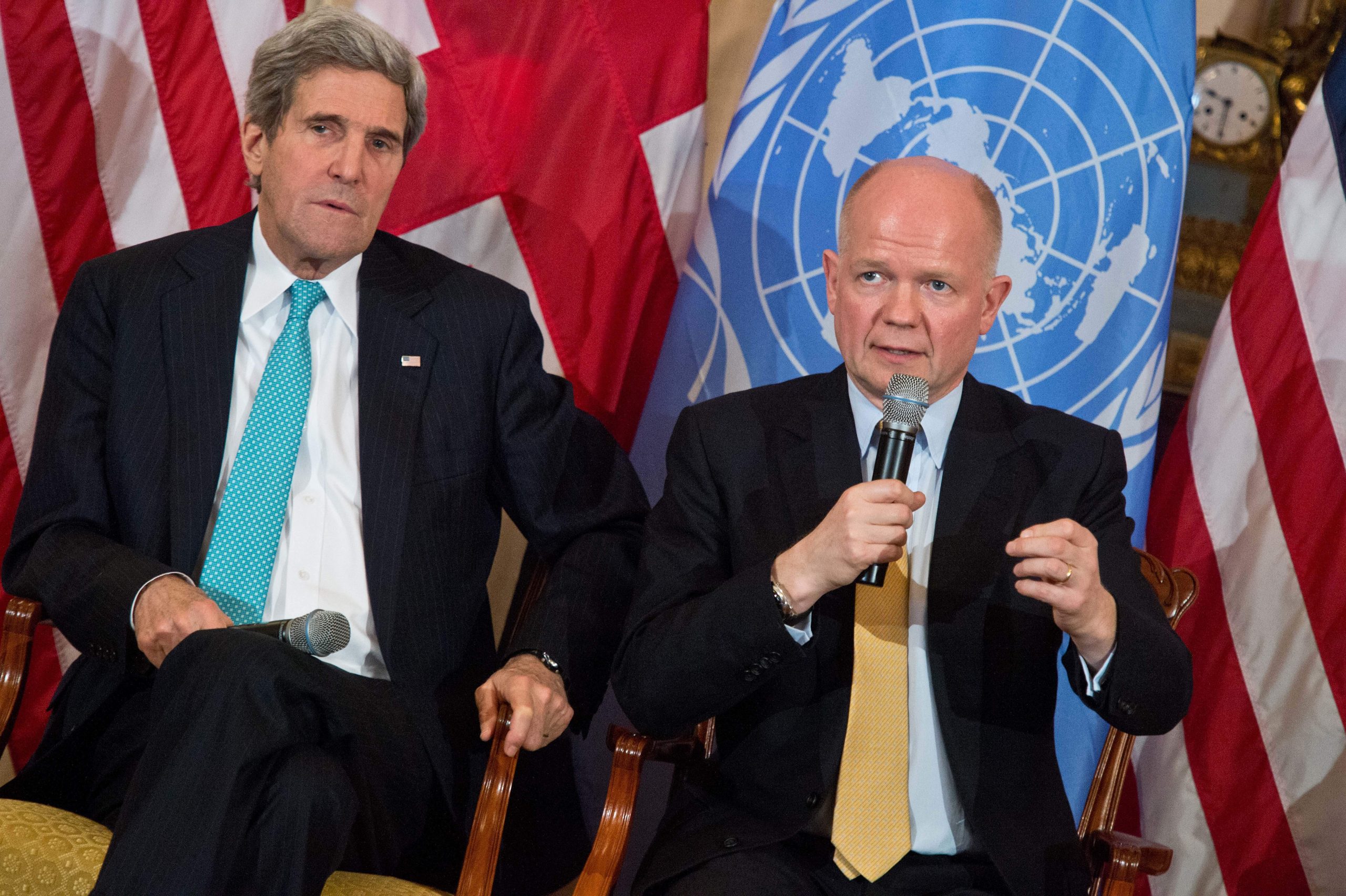
Whatever one’s view of recent western foreign policy, John Kerry’s attack on Russia for “invading another country on completely trumped up pretext” showed a remarkable lack of self-awareness. By using such language, Kerry, who voted for the Iraq war, carelessly exposed the US to the charge of hypocrisy. But when William Hague (who also supported the war as Conservative leader) was asked on the Today programme this morning whether he believed that the 2003 invasion had undermined the west’s moral standing, he unambiguously replied “No, I don’t think so” and said he “wouldn’t accept any parallels with Iraq”.
He added:
This is an entirely different situation. Ukraine is not a danger to other nations in the region, Ukraine presents no threat to its neighbours. This is not something where there is any justification whatsoever for the action that has been taken. I won’t accept any parallels with Iraq or any of the situations outside Europe in recent years.
Hague’s reference to other “situations” presumably includes Syria, which Tory ministers so unwisely invoked over the weekend in an opportunistic attempt to damage Ed Miliband. Sajid Javid tweeted: “Direct link between Miliband’s cynical vote against #Syria motion & Russia’s actions on #Ukraine. Completely unfit to lead Britain”, while Nick Boles wrote: “PM was right to urge Parliament to stand up to Putin and punish Assad’s use of chemical weapons. Look where Miliband’s weakness has led us.”
Earlier in the interview, Hague soberly stated that “they [Russia] have, in effect, taken control of the Crimea” and added that “there are things we can do and must do”. He warned of “significant costs” if Russia failed to respect Ukrainian sovereignty and highlighted the diplomatic action already taken by the west, including the suspension of involvement in preparatory meetings for the Sochi G8. Kerry has threatened Russia with expulsion from the organisation “if this continues”. Hague added that he “didn’t want to anticipate” what other action the west could take, but the expectation is that economic sanctions, such as asset freezes on Russian businesses, will follow. The challenge for the west will be reconciling its desire to punish Russia with the need to maintain Europe’s security of energy supply.





